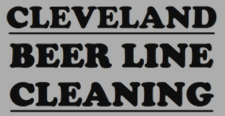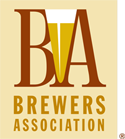5 Ways to Ensure Beer Line Cleanliness
1.) Use Fresh Food-Grade Materials
Whether your establishment is utilizing an older draught beer system or if you are shopping for a brand new tap system, using fresh food-grade materials is paramount in ensuring proper sanitation and draught beer quality. Today’s standards in tap system materials are stainless steel and polyethylene plastics. If you are purchasing a new system, be sure that all metal fittings, faucets, and couplers are made of food-grade 304 stainless steel. Older systems will commonly have brass or nickel parts which can easily and affordably be replaced with stainless. On large “long-draw” tap systems, the “trunk lines,” which make up the majority of the system (from the cooler to the faucets), should be manufactured from polyethylene tubing and enclosed in a glycol-chilled insulated packing.
2.) Replace Vinyl Beer Lines
A smaller portion of the system, referred to as the “jumper lines”, will be made of vinyl flex tubing, which connects the trunk to the keg couplers inside of the cooler. Carbon dioxide and nitrogen beer gas lines will often be made of vinyl too. Vinyl is utilized for this application because of its flexibility and resistance to kinking; but vinyl is not considered a food-grade material and these lines should be replaced once a year. Vinyl, unlike polyethylene, has a highly porous surface that will harbor sugar, protein, and microbial deposits that can permanently infect a draught system; therefore, it is best to simply replace these lines on an annual basis.
3.) Routine Caustic Beer Line Cleanings Every Two Weeks
Routine caustic beer line cleanings performed every two weeks by a qualified technician will greatly reduce the risk of microbial infection that may result in beer spoilage and the transmission of food-borne illnesses caused by pathogenic bacteria, mold, and yeast. Caustic solutions of either sodium hydroxide (NaOH) or potassium hydroxide (KOH) destroy sugar and protein residues that build up on the interior of beer lines, and remove microorganisms that reside and feed on these nutrient residues. These solutions should be used at a pH of 12-13. All beer must be purged from the system.
The lines should then be filled with caustic solution, given at least 10 minutes to soak, then all cleaning solution must be removed and the lines rinsed with fresh tap water. The rinse water should be run until its pH matches that of the fresh tap water (6.5-8.5) to ensure all caustic solution has been removed.
4.) Quarterly Acid Cleanings
In addition to bi-weekly caustic cleanings, quarterly (every 3 months) acid cleanings must also be performed to remove mineral deposits. Excess mineral buildup will create a rough interior on polyethylene beer lines, thus negating its anti-microbial effects and rendering it useless for food and beverage applications. To avoid mineral buildup in a tap system, be sure that acid cleanings are performed under the same criteria as caustic cleanings, but with a cleaning solution of either hydrochloric acid (HCl) or peroxyacetic acid (C2H4O3) at a pH of 2-3.
5.) Visually Inspect System Components Daily
Bar staff should visually inspect and hand-clean tap system components every day, and beer faucets should be cleaned every shift. Faucets will accumulate visible sugar and protein residues inside and out, and must be sprayed with an organic solvent such as isopropyl alcohol (rubbing alcohol) to remove them. Faucet brushes are available for cleaning the inside of faucets. Keg couplers should also be checked regularly. When visible residue buildup occurs, these residues should be removed using a toothbrush. Tough residues can be soaked in alcohol or dish detergent to break and remove these sticky protein and sugar films.
By following these simple guidelines, any bar or restaurant can be assured that they are serving draught beer at its highest quality and keeping microbial contamination to a minimum. Be sure to discuss these procedures with your draught beer line cleaner to make sure you are receiving adequate service, and educate bar staff as to the importance of daily in-house tap system cleaning regimens.



